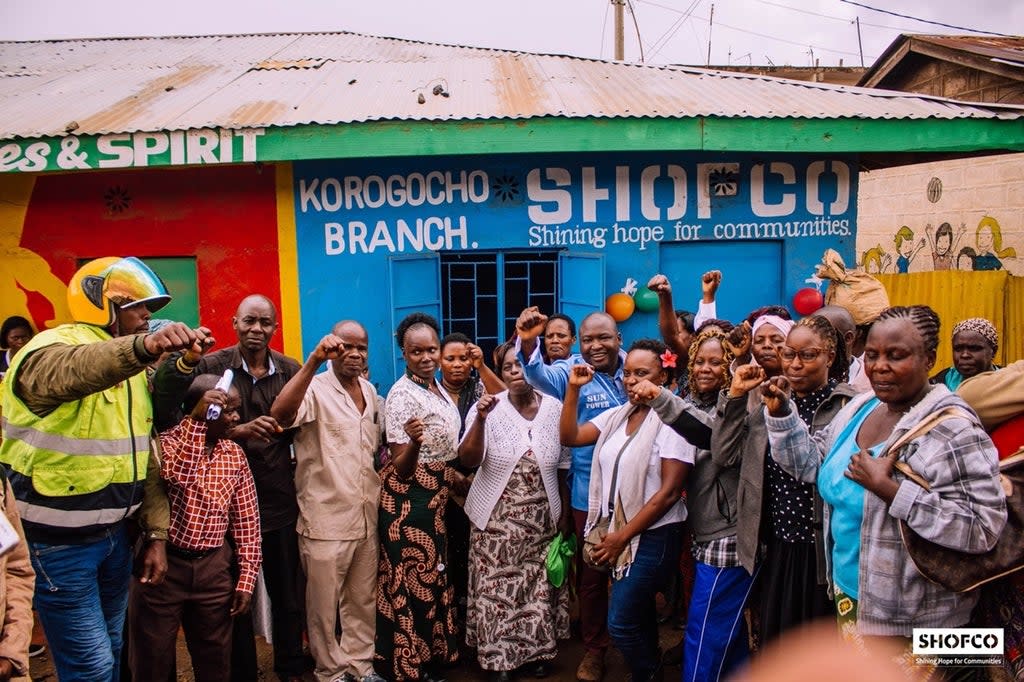‘Aid workers come and go, making lazy assumptions’ – a colonial mindset still hinders philanthropy in Africa

As an African founder and CEO of a locally-led non-profit, I have spent many years navigating the dynamics of philanthropic fundraising, and seeking funding from the global north.
For most of this time, I nursed a painful suspicion that I was expected to jump through more hoops for funding, and that any resulting funds came with more strings attached than for my white-led counterparts. New research released by Vodafone Foundation pulls back the curtains on the experiences of Civil Society Organisations (CSOs) in Africa and finds exactly this disparity between local African leaders and white-led institutions.
We now know that structurally, international development funding arrangements favour intermediary organisations from the global north at the expense of local African CSOs – particularly African non-governmental organisations (NGOs). The reasons for this are myriad, but it is severely hindering CSO effectiveness.
The dual failure of philanthropic funding in Africa is that so little of it reaches African CSOs, and when it does, its highly restricted nature – for example, funding often comes with strict project scopes that advance the donor’s own strategic goals rather than empower local CSOs to work with self-determination and flexibility – promotes aid reliance, instead of durable, transformative change.
Despite hailing from the marginalised communities in which we work, leaders of colour are consistently held to higher standards than their white counterparts. Whether this racial bias is consciously or unconsciously acted upon, it reflects a colonial mindset, and a troubling presumption that lighter skinned leaders are more capable and more worthy of investment.
As a result, racial bias in philanthropy is compromising the work of durable, social change. Growing up in Kibera, Africa’s largest slum, I saw first-hand how aid workers would come and go with ease, making lazy assumptions about how people lived and what quick fixes would bring positive impact to people’s lives. I was bitter towards outsiders who acted like they knew best.
In marginalised communities such as Kibera, a leader’s credibility has as much to do with lived experience and deeply-woven relationships as it does their strategic plans and impact frameworks. However, the development sector is not currently structured in such a way that uplifts and incentivises these trusted community-based leaders and solutions, who are best positioned to drive change.
African CSOs receive the smallest slice of the funding pie, and that funding comes highly restricted, which constrains CSOs to project-based thinking and incremental change – unable to make the investments required to shift systems for the long-term.
At the same time, international NGOs weaken local CSOs by moving their headquarters to Africa and registering as local organisations. While this is in part down to local regulation – certain African governments use legal and regulatory strategies to control, monitor and suppress NGO operations through measures including burdensome reporting requirements and high taxation on international funding – there is much more that needs to be done to reimagine relations, processes and systems, and to create a fairer way forward.
The fact there is now empirical proof to substantiate my suspicions does not leave me feeling vindicated. But I do feel determined to act, and to remind funders that the status quo is failing marginalised communities across Africa. Racial bias in philanthropy must be replaced with trust, redistribution of power, acknowledgement of a global-anti black bias, and flexible funding. The in-depth report, “Barriers to African Civil Society: Building the Sector’s Capacity and Potential to Scale Up”, provides a roadmap for change in global philanthropy, highlighting these and other active steps that key stakeholders can take.
Philanthropic funders, intermediaries, and INGOs must make deliberate, measurable efforts to share more power and responsibility with local CSOs that are in tune with community-level realities and levers for durable change. In addition to giving larger, unrestricted grants, donors must make conscious efforts to ensure that local CSOs have what they need to sustain themselves managerially and financially. For example, technical support to make digital technologies available and accessible to CSOs is a vital part of accelerating impact in our modern world.
At the same time, African governments should proactively support CSOs and promote policies (e.g. tax incentives) that facilitate rather than hinder their operations. CSOs can and should be expected to transparently self-regulate their own activities.
From a young age, I saw first-hand how people with the greatest lived experience and understanding of complex problems in their own communities are best-placed to fix them. It is high time for funders to take this wisdom to heart, and re-design the behaviours and incentives within their giving practices, to put community-driven leaders and solutions at the centre. Doing so is our only shot at driving transformative positive impact when and where it is most needed.
Kennedy Odede is the founder and CEO of Shining Hope for Communities (Shofco)
Read More
Opinion: Rosie Duffield’s views have no place in the Labour Party
Opinion: More people – particularly parents – should be joining M25 protesters
Opinion: We should value writers of colour for their talent not their trauma
The left is sweeping to power across Europe – why? | Denis Macshane
Crazy low interest rates are good for borrowers, but it can’t last | Hamish McRae
Opinion: Home or office? The future workplace doesn’t have to be all or nothing

 Yahoo News
Yahoo News 
